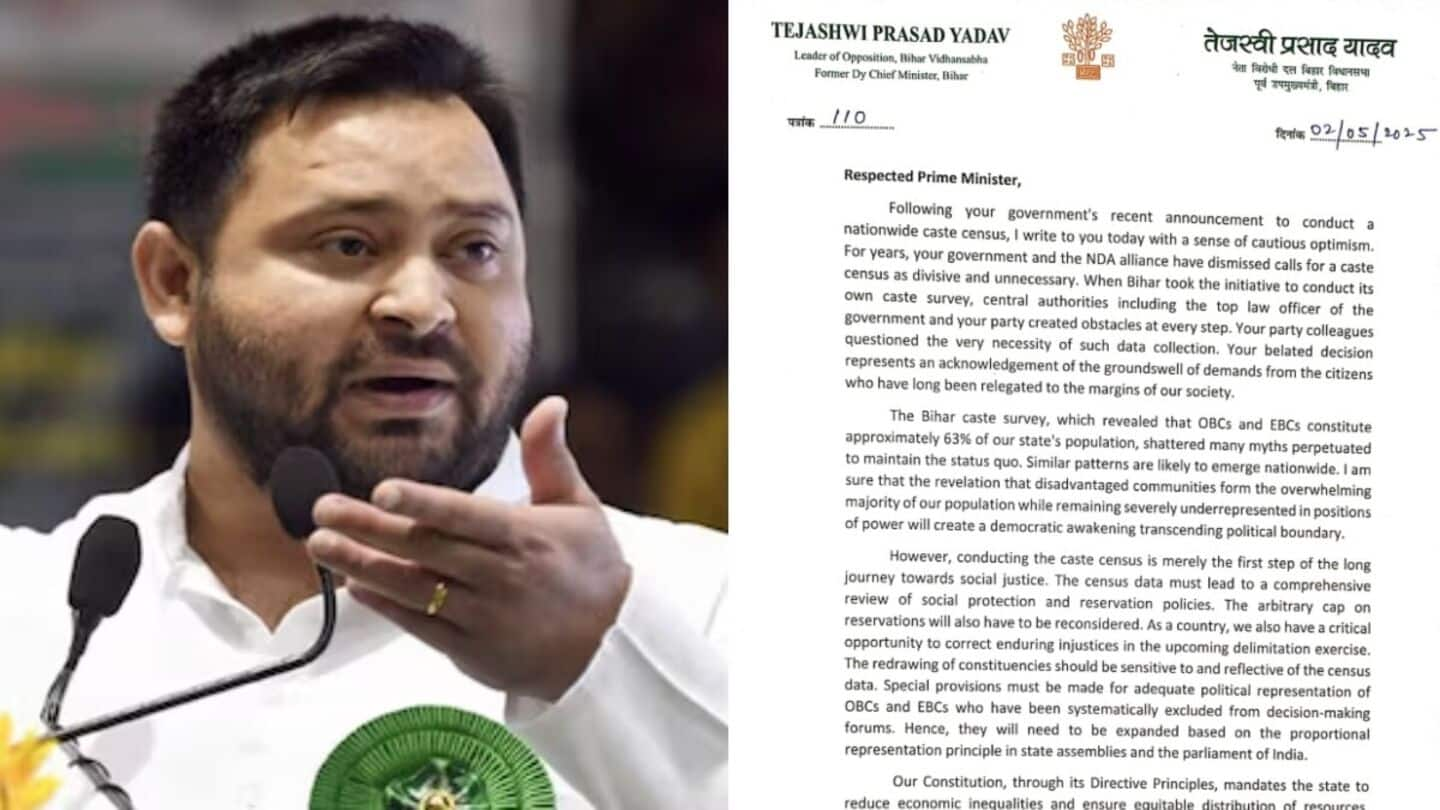
Tejashwi Yadav hails caste census as 'transformative moment' for India
What's the story
Former Bihar Deputy Chief Minister and senior Rashtriya Janata Dal (RJD) leader Tejashwi Yadav has welcomed the Indian government's decision to collect caste-based data in the upcoming national census. In a letter to Prime Minister Narendra Modi, he called it "a transformative moment in our nation's journey toward equality." He urged that the data should lead to meaningful policy changes.
Cautious optimism
Yadav expresses cautious optimism over caste census
Yadav expressed "cautious optimism" over the government's decision to conduct a caste census. He noted that the NDA government had earlier rejected demands for such a survey as divisive and unnecessary. The RJD leader also accused the government of obstructing Bihar's attempts to conduct its own caste survey, which has been met with resistance from officials and BJP leaders.
Census findings
Bihar's caste survey reveals significant demographic data
Yadav cited the Bihar caste survey that had discovered OBCs and EBCs comprised nearly 63% of the state's population. He said similar data at the national level could help debunk several myths that are used to maintain the status quo. The RJD leader reiterated that the caste census shouldn't be an end in itself, but "merely the first step of the long journey toward social justice."
Policy changes
Yadav advocates for policy reform and private sector alignment
Yadav said, "The census data must lead to a comprehensive review of social protection and reservation policies. The arbitrary cap on reservations will also have to be reconsidered." He further pointed out that the next delimitation exercise should reflect the social realities thrown up by the census and provide proportional political representation to marginalized groups like OBCs and EBCs in state legislatures and Parliament.
Private sector accountability
Yadav calls for private sector alignment with social justice
Yadav also called upon the private sector to fall in line with social justice objectives. "The private sector, which has been a major beneficiary of public resources, cannot remain insulated from social justice imperatives." He asked whether the census data would act as a catalyst for systemic reforms, or would it too gather dust like many past commission reports.